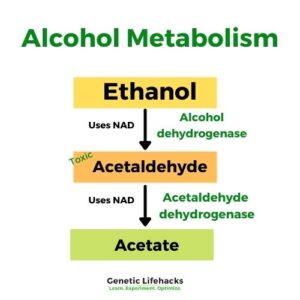Is Moderate Drinking Safe for Your Heart?
We’ve all heard it before: a glass of red wine is good for the heart. Many people, including some of my patients, believe that moderate drinking can be beneficial, especially for those with pre-existing heart conditions. However, the reality is more complex. Despite popular belief, alcohol is generally not safe for anyone at high risk of heart disease, particularly for populations with genetic predispositions like Indians. Recent studies suggest that the supposed heart benefits of alcohol might be based on flawed research.
Alcohol’s Impact on Heart Function
The Hidden Dangers of Alcohol Consumption

Alcohol can have a direct and detrimental effect on heart health. One of the immediate impacts is the risk of developing irregular heartbeats or arrhythmia. This occurs because alcohol breaks down into ketones in the body, causing an electrolyte imbalance that disrupts the electrical impulses in the heart.
Furthermore, alcohol is toxic to tissues, and excessive consumption can lead to alcohol-induced cardiomyopathy. This condition weakens the heart muscle, reducing its ability to pump oxygenated blood efficiently. Regular alcohol intake also increases blood pressure, putting additional stress on the heart and elevating the risk of heart attack and stroke.
In small doses, alcohol still poses a risk. Each drink contains 100-150 empty calories, which the body often stores as fat, leading to obesity. Alcohol contains approximately 7 kcal per gram, compared to 4 kcal per gram for carbohydrates. Thus, even moderate drinking can contribute to weight gain and associated heart risks.
Also Read: https://newsreporto.com/cutting-screen-time-boosting-kids-mental-health/
The Myth of Safe Moderate Drinking
Tolerance and Addiction Risks

Many people who drink regularly believe they are in control and thus safe from the harmful effects of alcohol. However, developing a tolerance to alcohol is often the first step toward addictive behavior. For individuals with comorbidities like diabetes, high cholesterol, or hypertension, quitting alcohol is crucial at this stage to prevent further health complications.
The French Paradox: Myth vs. Reality
Understanding the French Lifestyle
The “French paradox” refers to the observation that French people tend to have lower rates of heart disease despite consuming diets rich in cheese and wine. This phenomenon is often attributed to their disciplined lifestyle, which includes a healthy diet, regular physical activity, and moderate wine consumption.
The French typically follow a Mediterranean-style diet, which is rich in fruits, vegetables, and healthy fats. They also practice portion control and prioritize supper over dinner, which helps maintain their overall health. While red wine does contain resveratrol, a compound thought to have heart-protective properties, its benefits are not significant enough to outweigh the risks of alcohol consumption. Studies have shown that to match the doses that improved health in mice, humans would need to consume impractically large amounts of wine.
Scientific Evidence and Misconceptions
Flawed Studies and Real Risks
Recent reviews of studies on alcohol and heart health, published in the Journal of Studies on Alcohol and Drugs, indicate that many past studies were based on flawed scientific research. These studies failed to establish a definitive cause-and-effect relationship between alcohol consumption and heart health benefits.
In Southeast Asia, studies consistently show that alcohol is harmful to heart health. These findings challenge the notion that moderate drinking is safe and beneficial. The emerging consensus among researchers is that any potential benefits of alcohol are overshadowed by its risks, particularly for individuals with existing health issues or genetic predispositions to heart disease.
Alcohol’s Long-Term Effects
Beyond the Heart: Systemic Impacts

The adverse effects of alcohol extend beyond the cardiovascular system. Chronic alcohol consumption can lead to liver disease, neurological damage, and an increased risk of certain cancers. These systemic impacts further complicate the narrative that moderate alcohol consumption is safe or beneficial.
Regular alcohol intake can also interfere with the body’s ability to absorb essential nutrients, exacerbating conditions like osteoporosis and anemia. The cumulative effects of alcohol on various organ systems underscore the importance of reevaluating its role in a healthy lifestyle.
The Role of Genetics in Alcohol Metabolism
Genetic Predispositions and Health Outcomes

Genetics play a significant role in how individuals metabolize alcohol and their susceptibility to its effects. For example, populations with a higher prevalence of certain genetic markers may be more prone to developing alcohol-related health issues. In India, genetic predispositions make the population more susceptible to heart disease, and alcohol consumption can exacerbate these risks.
Understanding these genetic factors is crucial for developing personalized health recommendations and interventions. It also highlights the need for public health strategies that consider genetic diversity when addressing the risks of alcohol consumption.
Re-evaluating Alcohol Consumption Guidelines
Public Health Implications
The findings from recent studies call for a reevaluation of public health guidelines regarding alcohol consumption. Current guidelines that suggest moderate drinking may be safe or even beneficial need to be reconsidered in light of emerging evidence. Public health campaigns should focus on raising awareness about the risks of alcohol consumption and promoting healthier alternatives.
Healthcare providers also play a critical role in educating patients about the risks associated with alcohol and offering support for those seeking to reduce or quit drinking. By prioritizing evidence-based recommendations, we can better protect individuals from the harmful effects of alcohol.
Practical Steps for Reducing Alcohol Consumption
Adopting Healthier Habits
For those looking to reduce or eliminate alcohol from their lifestyle, several practical steps can be taken. These include setting clear goals, seeking support from friends and family, and finding alternative activities that do not involve drinking.
Incorporating healthy habits such as regular exercise, a balanced diet, and adequate sleep can also help mitigate the desire to drink. For individuals with a history of heavy drinking or alcohol dependence, seeking professional help is essential to ensure a safe and effective transition.
The Future of Research on Alcohol and Health
Continued Exploration and Education
As research on alcohol and health continues to evolve, it is crucial to stay informed about new findings and their implications. Ongoing studies will further clarify the relationship between alcohol consumption and various health outcomes, helping to shape future guidelines and recommendations.
Public health education efforts should focus on disseminating accurate information about the risks of alcohol and promoting evidence-based interventions. By fostering a culture of informed decision-making, we can empower individuals to make healthier choices regarding alcohol consumption.
Embracing a Healthier Lifestyle
Moving Beyond Alcohol
Ultimately, the goal is to promote a healthier lifestyle that minimizes the risks associated with alcohol consumption. This involves not only reducing or eliminating alcohol intake but also adopting a holistic approach to health that includes proper nutrition, regular physical activity, and mental well-being.
By prioritizing overall health and wellness, individuals can improve their quality of life and reduce the risk of developing alcohol-related health issues. Embracing a healthier lifestyle is a journey that requires commitment and support, but the benefits far outweigh the challenges.
https://www.geneticlifehacks.com/alcohol-genes-how-well-does-your-body-break-down-alcohol/
The question of whether alcohol is safe for the heart, even in small amounts, is complex and multifaceted. Recent research suggests that the risks of alcohol consumption may outweigh any potential benefits, particularly for individuals with genetic predispositions to heart disease or existing health conditions. As we continue to explore the relationship between alcohol and health, it is essential to prioritize evidence-based recommendations and promote healthier alternatives. By doing so, we can better protect our hearts and overall well-being, paving the way for a healthier future.

